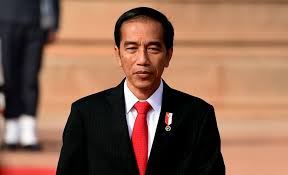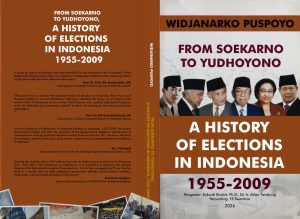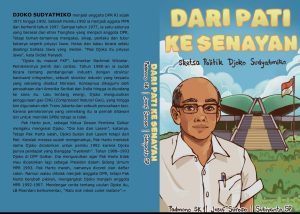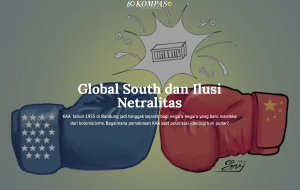Indonesia stands at a crucial political crossroads. As the Constitution Court opens doors for younger presidential contenders, the focus is on PDIP’s next move. While speculations about the Gibran and Prabowo Subianto partnership rise, the core strength and direction of PDIP might lie in its grassroots cadres. Their role will be the party’s response to these changes and its vision for the future.
Founded in 1999, the Indonesian Democratic Party of Struggle (PDIP) emerged as a beacon of reformist politics. Rooted in democracy, social justice, and nationalism, the party has consistently showcased its commitment to the nation’s growth.
The MK’s pivotal decision holds profound implications for Indonesia’s political trajectory. Previously, presidential or vice-presidential candidates must be at least 40 years old. The latest ruling, however, permits candidates under 40 with demonstrated regional leadership skills to infuse fresh vigor into the political arena. This opens doors for emerging leaders like Gibran Rakabuming Raka, the Mayor of Solo and President Joko Widodo’s son, as rumors circulate about Gibran potentially partnering with Prabowo Subianto, Chairman of The Great Indonesia Movement Party (Gerindra), as a Vice Presidential contender, apprehensions regarding a trend toward dynastic politics surface.
The emergence of potential dynastic politics is not a phenomenon unique to Indonesia. Countries like India with the Nehru-Gandhi dynasty, the Philippines with the Aquino and Marcos families, and the United States with the Bush and Kennedy families have all had their own experiences with such dynamics. However, the legislative response—specifically, the Constitution Court’s recent ruling- sets Indonesia apart, which seems to pave the way for dynastic leadership. Notably, the Chief Judge of the Constitutional Court, Anwar Usman, is President Jokowi’s brother-in-law, making Gibran Rakabuming Raka, the potential young leader under this revised rule, Usman’s nephew. This situation has raised eyebrows and prompted concerns about the motivations and implications of this verdict.
PDIP is now faced with a challenge that will test its character as a political entity. While the grassroots cadres have historically been PDIP’s strength, they still need their challenges. Some critics argue that the cadres might be susceptible to local vested interests, potentially causing a deviation from the party’s central principles. Addressing these concerns is essential for PDIP to maintain its credibility.
The overarching influence of Jokowi on Indonesian politics is undeniable. His tenure has been marked by reform, development, and a unique brand of leadership that has endeared him to many. However, the looming possibility of his legacy taking a more familial form raises questions about the future direction of Indonesian politics. Is the nation veering towards dynastic patterns seen in other Asian political landscapes?
For PDIP, this is more than just a transitional phase; it’s an examination of its core principles. With Jokowi’s immense contributions to the party and nation, will PDIP prioritize legacy over progress? Or will it pivot towards a broader vision, as indicated by its inclination to support figures like Ganjar Pranowo for the presidency?
Megawati Soekarnoputri, a beacon of PDIP’s legacy and a figure deeply woven into Indonesian politics, further complicates this narrative. Her vast experience, insights, and relationship dynamics with Jokowi will play a pivotal role in determining the party’s stance.
Yet, amid the whirlwind of high-stakes politics, the true pulse of PDIP remains its grassroots cadres. These individuals, nurtured over decades, are the lifeblood of the party. Their unwavering allegiance to PDIP’s vision and deep-seated connection to Indonesia’s socio-cultural milieu provides the party with a stable foundation, even in tumultuous times.
In today’s rapidly digitizing world, PDIP’s grassroots strength combines traditional outreach enriched by modern communication avenues. These cadres bridge the gap between PDIP’s vision and the aspirations of urban millennials and the traditionally rooted older generation.
Their continuous evolution ensures they remain relevant, guiding the party amidst shifting political sands. Beyond just being the voice of PDIP, they play a crucial role in translating top-tier policies into on-ground realities, ensuring that the party’s decisions are reflected in tangible societal benefits.
The MK ruling, Jokowi’s legacy, Megawati’s guiding hand, and the looming shadow of dynastic politics are all pivotal plot points in Indonesia’s current political narrative. But at the heart of this intricate tale is PDIP’s grassroots cadre, binding the narrative with their unwavering commitment.
The political arena is dynamic, and while the past may offer lessons, the future remains uncertain. Parties that evolve slowly with the times risk becoming relics. The stakes have never been higher for PDIP, a party with a rich history and legacy. With the political terrain undergoing such seismic shifts, there’s more at play than just selecting the right candidates or strategizing for the next election. The very soul of the party is under scrutiny.
Historically, political power in many nations has tended to concentrate, often within particular families or dynasties. This trend is not unique to Indonesia, but the MK’s recent ruling brings the issue to the forefront of national discourse. The prospect of Gibran Rakabuming Raka, a relatively young figure with clear familial ties to the current leadership, entering the presidential fray is emblematic of these concerns. For many, it poses an important question: Is Indonesia, under Jokowi and PDIP’s guidance, heading down a path trodden by others, where political legacy becomes more hereditary than meritocratic?
Yet, PDIP has a trump card – its long-standing commitment to grassroots democracy. The cadre system, entrenched in PDIP’s foundation, offers a counter-narrative. These cadres spread across the vast archipelago, serve as a reminder of the party’s commitment to a bottom-up approach to governance. Their day-to-day interactions with the local populace, understanding of regional nuances, and the ability to relay ground realities to the top echelons of party leadership make them invaluable.
Moreover, the cadres represent a continuity of PDIP’s ideals. While leaders may come and go, these grassroots workers maintain the party’s foundational principles. As discussions about Indonesia’s future leadership gain momentum, these cadres will be crucial in guiding PDIP’s choices, ensuring they align with the party’s core values.
Just as the U2 song “With or Without You” has stood the test of time, PDIP, with or without Jokowi’s backing, is poised to support Ganjar Pranowo as a Presidential candidate. This decision symbolizes the party’s confidence in its direction and choices. It signals a steadfastness in the party’s vision, independent of external influences or individual legacies.
Another aspect that must be addressed is the influence of global politics. Political parties must be forward-thinking as the world grapples with climate change and technological disruptions. PDIP’s next steps should consider the immediate political landscape and how Indonesia positions itself globally. The party’s choices now will have implications beyond the next election cycle.
In conclusion, PDIP is at a crossroads, considering a political landscape without Jokowi’s direct influence for the first time since 2014. While dynastic politics, reflected not just in the potential rise of Jokowi’s family but also in the enduring presence of figures like Megawati and Puan Maharani, pose challenges, the party’s decisions will shape Indonesia’s future direction. Grounded in its grassroots values and foundational principles, PDIP must strike a balance between respecting its legacy and fostering democratic ideals. This isn’t merely about an election but charting a path for Indonesia’s political evolution.





